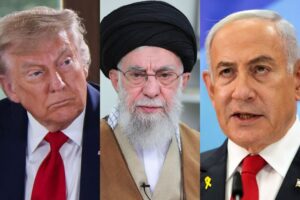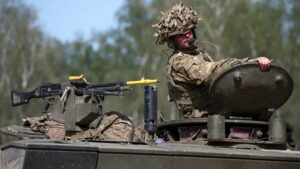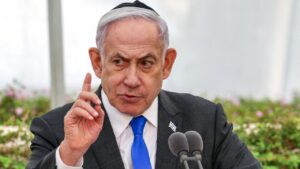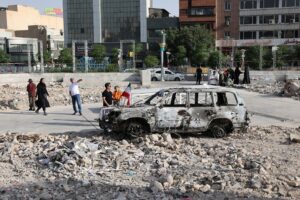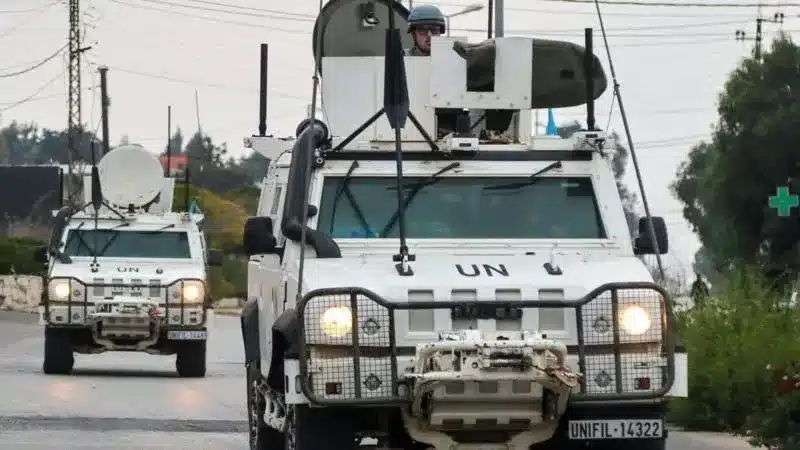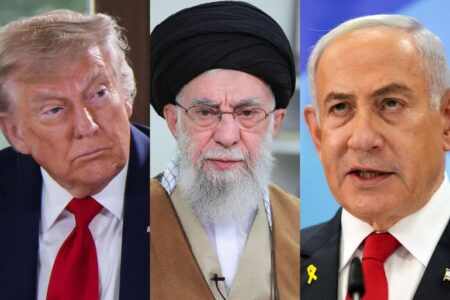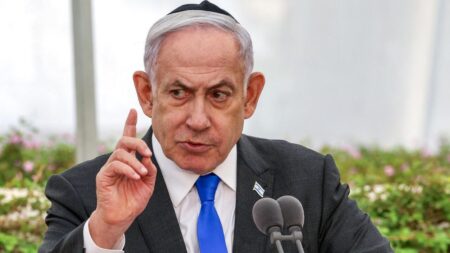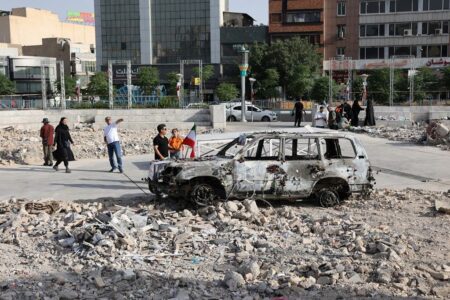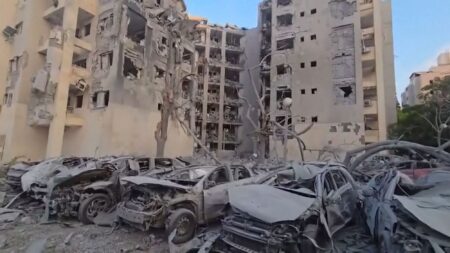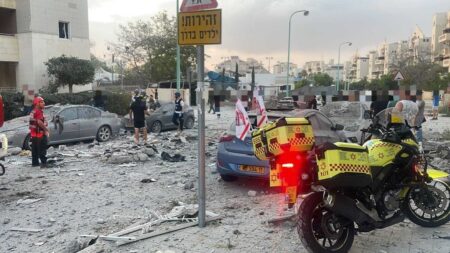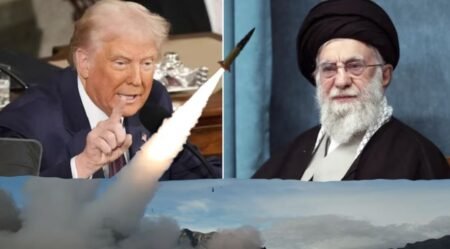US President Joe Biden has called on Israel to cease firing at United Nations peacekeepers during its ongoing conflict with Hezbollah in Lebanon, after two incidents occurred within 48 hours.
Biden expressed his concern, urging Israel to stop targeting the peacekeeping forces “absolutely, positively.”
The Israel Defense Forces (IDF) acknowledged responsibility for one of the incidents, in which two Sri Lankan soldiers from the UN Interim Force in Lebanon (Unifil) were injured on Friday.
IDF soldiers near Unifil’s Naqoura base reportedly opened fire after identifying what they perceived as a threat. The Israeli army announced it would launch an investigation “at the highest levels” into the incident.
This incident followed another on Thursday, in which two Indonesian peacekeepers were injured after falling from an observation tower that was fired upon by an Israeli tank. The IDF said the tower was mistaken for a threat.
In response to these attacks, France, Italy, and Spain issued a joint statement condemning Israel’s actions, calling them unjustifiable and demanding an immediate end.
Sri Lanka’s foreign ministry also denounced the attacks, strongly condemning the injury to its soldiers.
Jean-Pierre Lacroix, the head of UN peacekeeping, suggested that some of the attacks on UN positions may have been direct, citing damage to a tower and cameras as evidence of targeted strikes. He stopped short of directly blaming Israel for the incidents.
As the conflict rages on, the IDF and Hezbollah continue to exchange missile and rocket fire across the Israel-Lebanon border.
On Friday, the IDF reported detecting around 100 rockets fired from Lebanon into northern Israel within a half-hour span. The Israeli military also intercepted one of two uncrewed aerial vehicles (UAVs) crossing from Lebanon.
Lebanese officials reported that an Israeli raid on the southern city of Sidon killed three people, including a two-year-old girl. The Lebanese army said that two of its soldiers were killed in a separate Israeli strike on an army post in Kafra.
Meanwhile, rescue workers in Beirut sifted through debris following Israeli airstrikes on the capital, which left 22 civilians dead and 117 others injured, according to Lebanon’s Prime Minister Najib Mikati. Israel has not commented on these incidents.
Israel launched its ground invasion of southern Lebanon last month in response to rocket attacks from Hezbollah, an armed group backed by Iran. The cross-border exchanges have intensified since October when Hamas launched a deadly assault on southern Israel from Gaza, prompting Israel’s broader military response.
The IDF has called on UN peacekeepers to relocate 5 kilometers north to avoid danger, but Lacroix stated that the forces would remain in their current positions.
Approximately 10,000 peacekeepers from 50 nations are stationed in Lebanon, monitoring the region between the Litani River and the Israel-Lebanon border under UN mandate.
Hezbollah, which began firing rockets into Israel last October in support of Palestinians, has continued its attacks in solidarity with Hamas. The conflict has caused significant devastation in Lebanon, with over 2,000 people killed and hundreds of thousands displaced, according to Lebanese reports.
Amid the escalating violence, the situation in Gaza also remains dire. On Friday, at least 30 people were killed in Israeli airstrikes on Jabalia in northern Gaza, according to Gaza’s Hamas-run civil defence agency. The medical charity Doctors Without Borders (MSF) reported that “thousands are trapped” in the area, including some of its staff, and warned of a humanitarian crisis as fuel and medical supplies dwindle.
Israel says it is targeting Hamas fighters regrouping in the area as the death toll continues to rise.
The conflict shows no signs of abating, as both Israel and Hezbollah continue to trade fire across the Israel-Lebanon border, while the humanitarian toll mounts in both Lebanon and Gaza.


